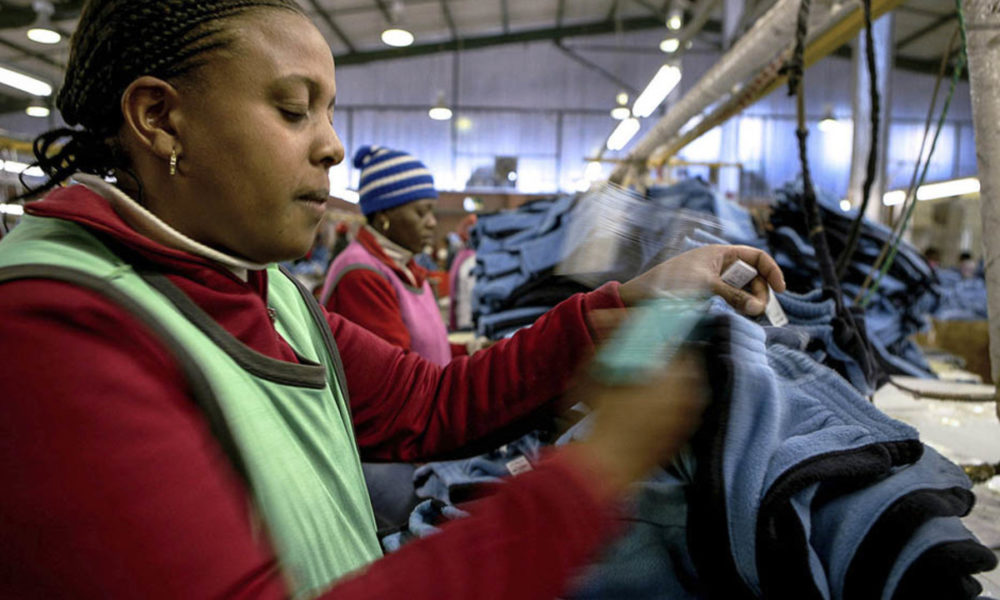Business
CBN to Blacklist Firms, Individuals Smuggling Textiles

- CBN to Blacklist Firms, Individuals Smuggling Textiles
The Federal Government is currently gathering data and investigating the accounts of individuals and corporate entity currently involved in smuggling and dumping of textile materials in Nigeria.
The Central Bank Governor, Godwin Emefiele, said this while inaugurating the distribution of cotton seeds and other inputs to over 100,000 cotton farmers in Katsina State for the 2019 farming season on Monday.
The programme aimed at reviving Nigeria’s cotton, textiles and garments sector and improving cotton production from 80,000 tonnes produced in 2018 to over 300,000 tonnes by 2020.
To reverse the trend of smuggling, Emefiele said, “The bank was currently gathering data about, and investigating the accounts of individuals and corporates currently involved in smuggling and dumping textile materials in Nigeria with the ultimate aim of blacklisting the individuals and companies involved in the illicit trade.”
He added that all banks in Nigeria would be barred from conducting any banking business with the companies, their owners and top management.
Emefiele also revealed that a national committee on revamping the cotton, textile and garment sector had been constituted to drive the initiative to achieve self-sufficiency in cotton production and textile material within a span of five years.
He said the membership of the committee included the CBN, Federal Ministries of Agriculture and Rural Development; Water Resources; Industry, Trade and Investment; and the governments of Kano, Kaduna, Katsina, Gombe and Zamfara states.
Emefiele, who was supported at the inauguration by the governors of Katsina State, Bello Masari; and Kano State, Abdullahi Ganduje; and the Minister of Agriculture and Rural Development, Chief Audu Ogbeh, also reiterated that the foreign exchange restriction on finished textiles and other 42 items remained in force.
He further noted that the CBN had identified insufficient cotton seeds as one of the major challenges facing cotton farmers and that the bank sought to change the narrative on the cotton and textile industry in Nigeria through the distribution of high yielding cotton seeds to them.
According to him, the provision of seedlings to more than 100,000 farmers cultivating over 200,000 hectares of farmland, along with extensive training on proper farming techniques, will boost production of high grade cotton lint at much improved yields of up to four tonnes per hectare, from the current cultivation rates of less than one tonne per hectare.
He said the move would also reduced the amount spent by Nigeria on imported textiles and ready-made clothing estimated at about $4bn annually.
Emefiele also disclosed that the package included fertilizer, pesticides and knapsack sprayers, adding that the National Cotton Association of Nigeria would ensure compliance of its members with the stipulated terms for the support that would be provided to farmers.
He said that the choice of Katsina was based on the immense potential of the state as the leading cotton-producing state in the country.
He also noted that the bank was committed to the revamping of the cotton and textiles industry, given its immense potential to Nigeria’s growth objectives as well as the bank’s efforts at creating jobs for a large number of Nigerians.
While recalling the good days of the textile industries in Nigeria in the 1970s and early 1980s, Emefiele noted that Nigeria was home to Africa’s largest textile industry, with over 180 textile mills that employed over 450,000 people, representing about 25 per cent of the workforce in the manufacturing sector.